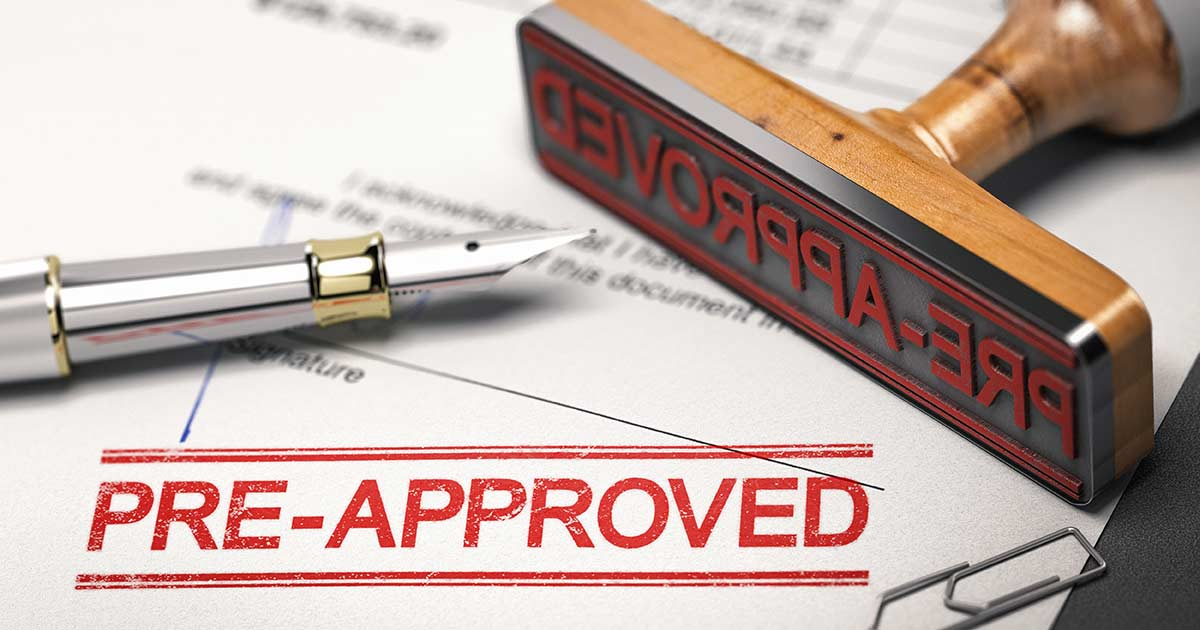The North Texas Home Buying Guide: What Your Agent Isn’t Telling You
Let’s Cut Through the BS
Here’s what nobody tells you about buying a home in North Texas: the game changed in 2024, and most agents are still playing by the old rules.
I’m not here to give you the sanitized version. I’m here to give you real intel, the kind that comes from major development and corporate relocations before most agents even knew it was happening.
This isn’t a guide. It’s your competitive advantage.
Part 1: The Money Talk Nobody Wants to Have

What You Actually Need
Everyone asks: “How much do I need to buy a house?”
Wrong question.
Right question: “How much do I need to buy the RIGHT house at the RIGHT time?”
Down payment truth:
-
- Conventional: 3% down
-
- FHA: 3.5% down (credit score 580+)
-
- VA: 0% down (if eligible)
-
- USDA: 0% down (yes, parts of Ellis County qualify)
Translation: On a $350,000 home in Waxahachie, you could get in with as little as $10,500 down plus closing costs (2-5% of purchase price).
But here’s the strategic move: Save 10-15% of target price for:
-
- Down payment
-
- Closing costs (~$7,000-$17,700 on $350K home)
-
- Financial cushion
-
- Negotiating power
The Ellis County Reality
Median Ellis County home: ~$354,000
Monthly costs people forget:
-
- Mortgage (P&I, 7%, 10% down): ~$2,100
-
- Property taxes (2.4% here): ~$700/month
-
- Insurance: ~$200/month
-
- Maintenance (1% annually): ~$300/month
-
- TOTAL: $3,300+/month
Factor that in NOW, not when you’re shocked later. [1]
Debt-to-Income: The Number That Matters
Formula: (All monthly debt ÷ Gross monthly income) × 100
What lenders want:
-
- Conventional: 36% or below (some go to 50% with strong credit)
-
- FHA: 43% max
-
- VA: 41% recommended
Example: You make $7,000/month with $800 debt. Want a $2,000 mortgage? Your DTI is 40%, you’d qualify, but you’re pushing it.
The Franklin Move: Most buyers focus on what they CAN afford. Smart buyers focus on what they SHOULD afford while maintaining flexibility. Chaos is opportunity, but only if you have the bandwidth to capitalize.
Part 2: Get Your Financial House in Order

Your Credit Score: The $50,000 Decision
The difference between a 680 and 760 credit score on a $350K mortgage costs over $50,000 in interest over 30 years.
Read that again.
Minimum scores:
-
- Conventional: 620 (but pay less with 740+)
-
- FHA: 580 for 3.5% down
-
- VA: No official minimum, most want 620+
Boost your score in 30-90 days:
-
- Dispute credit report errors (AnnualCreditReport.com)
-
- Pay credit cards below 30% utilization (below 10% is better)
-
- Make all payments on time (set autopay NOW)
-
- Don’t close old accounts
-
- Don’t open new accounts
First-Time Buyer Programs (That Agents Don’t Mention)
Over 2,466 homebuyer assistance programs exist. Most buyers have NO IDEA. [2]
Key programs:
-
- National Homebuyers Fund: Up to 5% forgivable grant
-
- Texas State Affordable Housing Corp: Up to 5% down payment assistance
-
- My First Texas Home: Low-interest mortgages
-
- Homes for Texas Heroes: Grants for teachers, firefighters, EMS, law enforcement, military, healthcare
Pro tip: “First-time buyer” = anyone who hasn’t owned a home in 3 years. Even if you owned before, you might qualify.
Part 3: Get Pre-Approved (Not Pre-Qualified)

The Difference That Matters
Pre-Qualification:
-
- Not based on real numbers, only on what YOU tell the lender
-
- No verification or documents required
-
- Sellers laugh at it, it holds no merit
Pre-Approval:
-
- Based on verified income, assets, credit
-
- A real conditional commitment from lender
-
- Actually carries real weight and is required when submitting an offer in TX
In North Texas, showing up with only pre-qualification is bringing a water pistol to a gunfight.
Documents You Will Need
Have these ready in a folder: [3]
-
- Pay stubs (last 30 days)
-
- W-2s (last 2 years)
-
- Tax returns (last 2 years if self-employed)
-
- Bank statements (last 2-3 months)
-
- Employment verification
-
- Government ID and Social Security number
-
- Gift letter (if using gifted funds)
Shop at Least 3 Lenders
Get quotes from:
-
- A local lender, a mortgage broker, or a recommendation from your agent.
-
- Avoid big banks, credit unions and any 1-800 or national level lenders.
-
- Check out my guide on How to Choose a Lender for more Info.(just click on the image below)

Compare: Interest rate, APR, closing costs, responsiveness, technology
Time frame: 1-3 days for pre-approval, valid 60-90 days
Part 4: The NAR Settlement Changed Everything

What Changed for Buyers (August 2024)
NEW RULES:
-
- You must sign a Buyer Representation Agreement BEFORE touring homes [4]
-
- Must state how your agent gets paid
-
- Must specify exact amount or rate
-
- Can be flat fee, percentage, or hourly
-
- Sellers can’t advertise buyer agent commission on MLS anymore
-
- Doesn’t mean they won’t pay it, now they’re actually paying more on average than they did before
-
- Your agent will negotiate this into the offer
-
- Everything is negotiable (always was, now it’s explicit)
The Franklin perspective: Everyone panicked. I saw opportunity. Now buyers understand what they’re paying for and agents must PROVE value. Good agents got better. Bad agents left. You win.
Questions to Ask Your Agent
Basics:
-
- How long have you been in real estate?
-
- How many transactions have you closed in the last 12 months?
-
- Ask for recent buyer client references, aka online reviews/testimonials
-
- Analyze their communication style and ask about their response time
Questions that separate good agents from great ones:
-
- What percentage dual agency do you participate in? (Over 10% = red flag)
-
- How do you track market intel on developments and trends?
-
- What is your strategy for off-market properties?
-
- Tell me about a deal that fell apart, what did you learn?
-
- What’s your commission structure and what’s included in working with you?
My difference: I track developments and corporate relocations before they hit news. I know which neighborhoods are getting new schools, which roads are being widened, which areas are seeing institutional investment, and where the next batch of corporate employees is getting relocated to. That intel is the difference between buying BEFORE values jump and AFTER everyone figured it out.
Part 5: The Home Search Strategy

Your Rights: Fair Housing Act
Protects from discrimination based on:
-
- Race, color, religion, sex, national origin, familial status, disability
If you experience discrimination: File complaint with HUD or state Attorney General immediately. Then find another agent [5]
Search Criteria: Must-Haves vs. Nice-to-Haves
Location (something you can’t change later):
-
- Commute time (test during rush hour)
-
- School districts (affects resale even without kids)
-
- Future development plans (my intel becomes critical here)
Property Must-Haves:
-
- Bedrooms/bathrooms for your household
-
- Layout – you can always upgrade finishes, but it’s wildly expensive to add/modify rooms
-
- Square footage you actually need
-
- Major systems condition and history(roof, HVAC, foundation)
Nice-to-Haves:
-
- Updated kitchen, hardwood floors, fireplace, pool, clawfoot tub, specific finishes
The Franklin strategy: Focus on bones and location. Everything else can be changed. You can’t move the house or easily reorganize the layout, but you CAN replace countertops.
Most Searched Home Features (from Zillow users’ 250 Billion Searches)
-
- Garage
-
- Fireplace
-
- Hardwood floors
-
- Walk-in closet
-
- Updated kitchen [6]
Notice what’s NOT on this list?
-
- Location near good schools
-
- Strong foundation
-
- Efficient HVAC
-
- Good roof
-
- Low property taxes
Most buyers search with hearts, not heads. Be smarter.
Part 6: Making the Offer

Components of a Strong Offer
1. Purchase Price
I’ll provide a CMA showing recent comparable sales, dig into the trends with AI and make sure your offer is both fair and competitive.
Consider:
-
- Current market conditions, days on market, competition level, home condition and especially your max budget
2. Earnest Money: typically 1-2% of purchase price, held in escrow, can be more if you want a stronger offer
3. Critical Contingencies:
-
- Financing: Protects if you can’t get mortgage
-
- Inspection: Lets you request repairs or cancel (NEVER WAIVE THIS)
-
- Appraisal: Protects if home appraises lower than your offer
4. Closing Date: Consider your timeline and seller’s needs, typically 30 days or 60 days with a 30-day seller leaseback(seller stays 30 days after closing)
Buyer’s Market vs. Seller’s Market Strategy
BUYER’S MARKET:
-
- Start 5-10% below asking on overpriced homes
-
- Request seller concessions for closing costs, apply these to buying down your rate
-
- Include reasonable contingencies, unrealistic timelines won’t be accepted even in a buyer’s market
-
- Take your time, but not too long. You still want to be taken seriously by the seller
SELLER’S MARKET:
-
- Offer at or above asking on properly priced homes
-
- Minimize contingencies where safe (keep inspection!)
-
- Increase earnest money, more is better
-
- Be flexible on closing date, sellers may need to stay while they find their next house
-
- Consider escalation clause
-
- Move as FAST as you can without being careless
Ellis County reality: We’re in transition. Some pockets (Waxahachie downtown, Red Oak near schools) are competitive. Others (rural properties, outdated homes) sit longer. Micro-market knowledge matters.
Part 7: Home Inspection (The $500 That Saves $50k+)

Most important $300-$500 you’ll spend.
The 10 Critical Inspector Questions
Before hiring an inspector:
-
- Check their certifications and licenses (ASHI, InterNACHI, state license)
-
- Are they bonded and insured?
-
- How many inspections have they completed?
-
- What do their online reviews look like?
-
- What’s included/excluded?
-
- Consider an elevation survey to help detect discrepancies in the foundation levels(potential movement)
During inspection:
-
- Ask for the roof age and remaining lifespan estimation
-
- HVAC and water heater age and condition
-
- Electrical panel up to code and age?
-
- Where does sewage go, what’s the condition?(bellies are a HUGE problem)
-
- Ask them directly, would you buy this house?
That last question cuts through the BS.
What You Should Inspect
Structural (expensive):
-
- Foundation, roof, windows, water damage, HVAC, water heater. The inspector will let you know if any of these look faulty but they can’t estimate repair costs as they are not licensed to do so. You should immediately hire a professional in the relevant field to inspect them(HVAC guy for HVAC, plumber for water heater, etc.)
-
- Negotiate any estimated repair costs into your contract during the option period.
Practical (daily living):
-
- Natural light, room flow, storage, noise, cell reception
Future value (resale):
-
- Neighborhood condition, nearby development, school ratings, property tax trends
Negotiating After Inspection
Your four options:
-
- Request repairs from a licensed professional (you don’t want the seller’s nephew doing it based on a YouTube video)
-
- Request price reduction (lower purchase price)
-
- Request credit at closing (you control repairs, usually better)
-
- Walk away (use contingency if too severe)
Focus on: Safety, structure, major systems. Don’t sweat cosmetic stuff.
Ellis County-specific: Expansive clay soil = foundation issues are real. Pay extra attention. Wells and septic systems need professional inspection. [7]
For more information check out my guide on how to choose a Home Inspector(click on the image below)

Part 8: Securing Your Mortgage

What NOT to Do During Underwriting
DO NOT:
-
- Buy a car/boat or furniture on credit
-
- Open/close credit accounts
-
- Change jobs
-
- Make large cash deposits without documentation
-
- Miss any bill payments
-
- Make ANY major financial changes
ANY of these can kill your loan approval, even days before closing.
The Appraisal: Three Outcomes
1. Appraises at or above purchase price: Perfect. Deal proceeds.
2. Appraises below purchase price: Problem, but can be remedied with proper negotiations
Example: Purchase $350K, appraises $340K. Lender only loans on $340K.
Your options:
-
- Renegotiate price to $340K
-
- Bring extra $10K cash
-
- Meet in middle
-
- Challenge appraisal with supporting data
-
- Walk away using appraisal contingency
3. Seller challenges: They can provide additional comps or request second appraisal
Part 9: Final Walk-Through (Your Last Chance)

Schedule within 24 hours of closing. This is NOT optional.
What to Check
-
- [ ] All agreed repairs completed properly
-
- [ ] No new damage
-
- [ ] All included items present (appliances, fixtures)
-
- [ ] Utilities work (test everything)
-
- [ ] Seller removed all belongings
-
- [ ] Property broom-clean per contract
If you find problems/missing items:
-
- Document with photos/video
-
- Contact agent immediately
-
- Assess severity (delay closing or request credit)
Once you close, it’s YOUR problem. This is your last chance. But be warned, if you back out now, you will lose your earnest money and potentially open up yourself to a lawsuit from the seller. They could sue you for enforcement of contract.
Part 10: Closing Disclosure Review

You MUST receive this at least 3 business days before closing (federal law).
Critical Comparisons
Compare Closing Disclosure to your Loan Estimate:
Look for:
-
- Interest rate changes
-
- Unexpected fees
-
- Higher costs than estimated
-
- Different loan terms
Acceptable: Minor variance in prepaids (taxes, insurance, interest)
Unacceptable: Higher interest rate, undisclosed fees, dramatically higher costs
If you find discrepancies: Contact lender immediately. Don’t sign if uncomfortable. You can delay closing to review.
Part 11: Closing Day

Takes 1-2 hours. Bring patience and a good pen, you’re signing 30+ documents.
What to Bring
Required:
-
- Government-issued photo ID
-
- Cashier’s check or proof of wire transfer (confirm wiring instructions by PHONE, email hacks are common. NEVER trust the email by itself)
-
- Proof of homeowners insurance
-
- Personal checkbook for last-minute small charges
Key Documents You’ll Sign
-
- Closing Disclosure: Final loan terms review
-
- Promissory Note: Your promise to repay
-
- Mortgage/Deed of Trust: Secures home as collateral
-
- Deed: Transfers ownership from seller to you
-
- Title Insurance: Protects against title defects
-
- Plus various affidavits and disclosures [8]
Ask questions if anything is unclear. This is your RIGHT.
After Signing
-
- Deed recorded with county
-
- You get the keys
-
- Utilities transfer to your name
-
- First mortgage payment due in 30 days
CONGRATULATIONS, YOU’RE A HOMEOWNER.
Part 12: Common First-Time Buyer Mistakes

Financial Mistakes:
-
- Not getting pre-approved before shopping
-
- Maxing out budget (approved for $400K ≠ should borrow $400K)
-
- Underestimating total costs (taxes, insurance, maintenance)
-
- Draining savings for down payment
-
- Making major purchases before closing
Process Mistakes:
-
- Skipping inspection (WORST MISTAKE)
-
- Passing up on a home because only based on aesthetics (paint changes, location doesn’t)
-
- Ignoring the neighborhood (visit at different times, talk to neighbors, visit at night)
-
- Emotional decisions (stay objective about major issues)
-
- Moving too fast OR too slowly (find the balance)
Search Mistakes:
-
- Not reading fine print (contracts, HOA rules)
-
- Overlooking resale value (life changes, think like investor)
-
- Trying to time market (buy when YOU’RE ready and find right home)
-
- Poor communication with agent (be honest about concerns and respond promptly)
Part 13: Life After Closing

Immediate Actions (First 30 Days)
Security:
-
- Change all locks immediately
-
- Update security codes
Utilities/Services:
-
- Transfer electricity, gas, water, trash, internet. Some of these need to be done in person so be ready to take a weekday off
Address Changes:
-
- Post office, employer, banks, insurance, voter registration, DMV
Safety:
-
- Test smoke/CO detectors
-
- Locate shut-off valves (water, gas, electrical)
-
- Change HVAC filters
Documentation:
-
- Create home maintenance file (manuals, warranties, inspection report, contractor contacts)
Ongoing Maintenance
Budget 1-3% of home value annually for maintenance = $290-$875/month on $350K home
Monthly:
-
- Change HVAC filters
-
- Test smoke/CO detectors
Quarterly:
-
- Clean dryer vent
-
- Check caulking
-
- Test GFCI outlets
Bi-Annually:
-
- HVAC professional service
-
- Clean gutters
-
- Inspect roof from ground
-
- Trim trees away from house
Annually:
-
- Flush water heater
-
- Have chimney inspected
-
- Check attic
-
- Review insurance
Ellis County-Specific Maintenance
Expansive clay soil:
-
- Keep soil around foundation consistently moist
-
- Use soaker hoses during dry periods
-
- Address drainage issues immediately
Weather:
-
- Tornado season prep (spring)
-
- HVAC works overtime in summer heat
-
- Protect pipes during winter freezes
Conclusion: Your Strategic Advantage

Key Takeaways
Financial prep is critical:
-
- Fix credit early, save 10-15%, get pre-approved, understand DTI
Your team determines success:
-
- Agent who tracks market intel, not just listings
-
- Shop lenders aggressively
-
- Never skip inspection
Process discipline wins:
-
- Use contingencies wisely
-
- Attend inspections and final walk-through
-
- Read everything before signing
Strategic thinking beats emotions:
-
- Location and structure > finishes
-
- Resale value always matters
-
- Don’t max budget
-
- Chaos creates opportunities if you’re positioned
Why This Approach Works
While other agents:
-
- Copy generic guides
-
- Chase every lead
-
- Hope buyers find them
This agent:
-
- Tracks major developments and corporate relocations
-
- Monitor infrastructure projects affecting values
-
- Build developer relationships before projects go public
-
- Provides intel that creates “bought before everyone else figured it out” moments
That’s the Franklin approach: See what others miss. Move while others analyze. Build authority through intelligence, not fluff.
Ready to Start?

You’ve got the intel. You understand the process. You know the mistakes to avoid.
Now: Are you using a generic agent who treats this like a transaction, or someone who treats it like strategic warfare?
I’m Bobby Franklin. I track North Texas market intelligence like it’s my full-time job (because it is). I see developments coming before they hit news. I know which streets are about to pop and which are overhyped.
When you work with me:
-
- Real market intelligence, not recycled listing data
-
- Access to off-market opportunities
-
- Vetted network of lenders, inspectors, contractors
-
- Response times in minutes, not hours
-
- An agent building a media empire, not just selling houses
Let’s start:
📲 Text: 214-228-0003
📧 Email: [email protected]
🌐 Website: www.northtexasmarketinsider.com
Initial consultation covers:
-
- Financial readiness analysis
-
- Target neighborhoods based on YOUR goals
-
- Strategic buying timeline
-
- Vetted lender connections
-
- Plan to WIN the right home at right price
In Ellis County and DFW, information moves fast. Opportunities don’t wait.
The question isn’t whether you CAN buy. It’s whether you’ll do it with strategic advantage.
Compliance & Disclosures
Fair Housing: Complies with Fair Housing Act and all applicable laws. Equal service without discrimination.
Information Accuracy: For educational purposes. Not legal, financial, or tax advice. Consult qualified professionals.
RESPA & NAR Compliance: Complies with RESPA, CFPB regulations, and NAR settlement provisions (August 2024).
Market Data: Compiled from MLS data, public records, industry reports. Verify specific information independently.
 =
=

Bobby Franklin
Realtor®
Serving DFW | Ellis County
16 Northgate Dr. Ste 100
Waxahachie, TX 75165
Ready To Talk Strategy?
1 On 1 Consultation | Market Advantage
